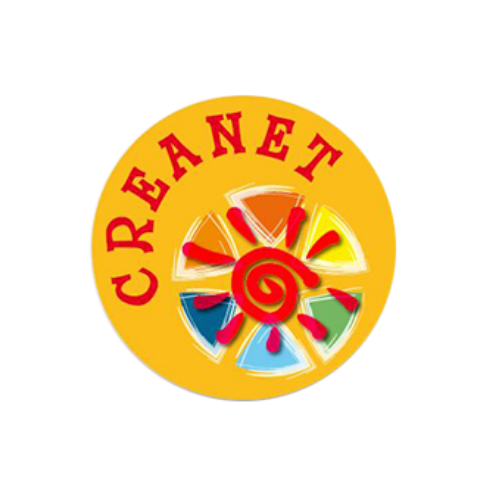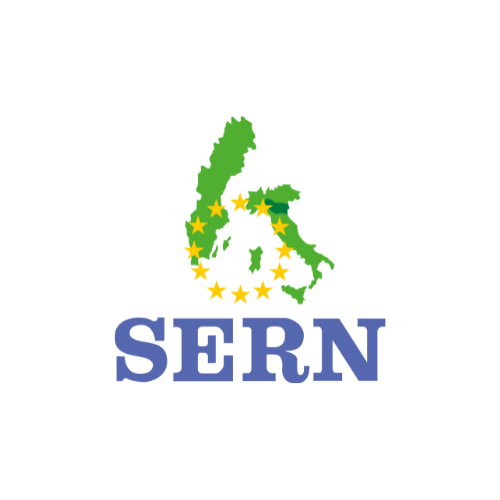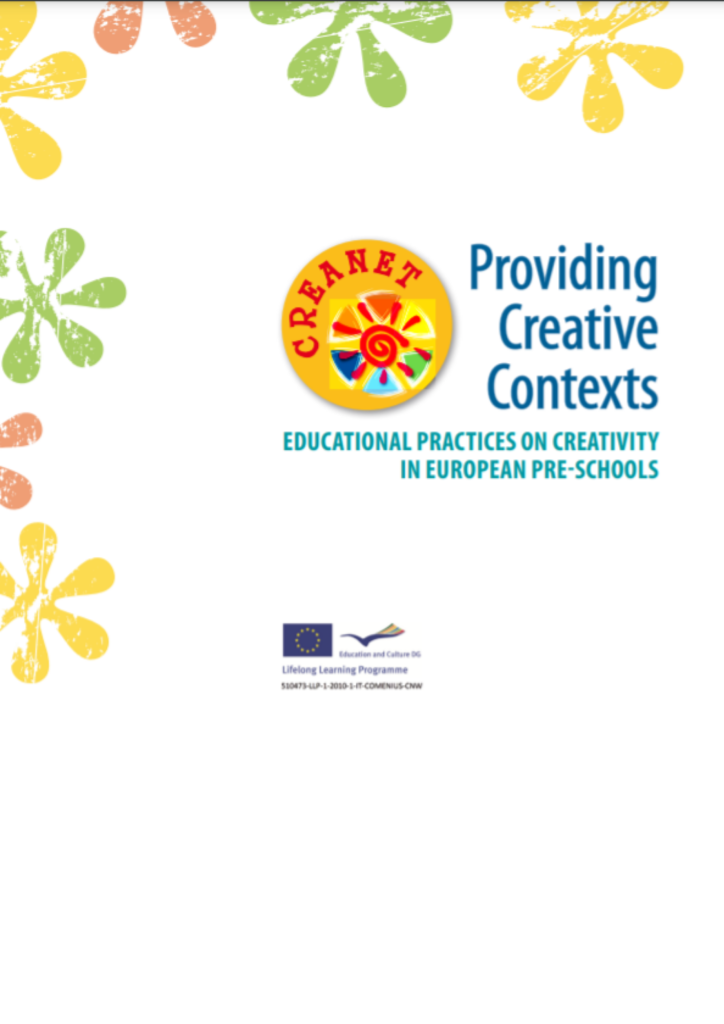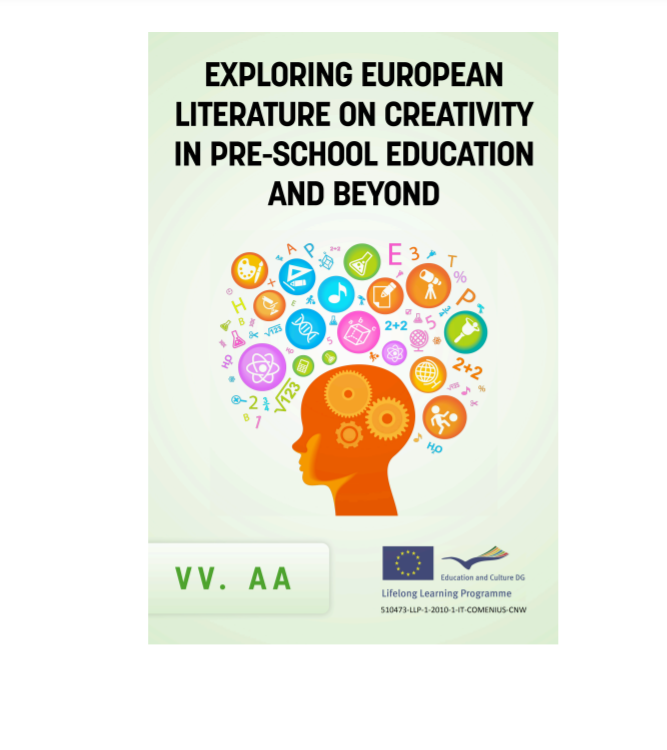

LLP

CREANET was a Comenius network submitted under the Lifelong Learing Programme in 2010 and ended up in 2013. The project was aimed at developing a European forum for discussion, research, exchange of best practices on creativity in pre-school education from a multidisciplinary and cross-institutional perspective. In particular, the theme of creativity has been approached by focusing on two specific aspects: creativity and contexts (spaces, materials, relations) and expressive languages (artistic and verbal languages, body language).
The network implemented three main sets of activities:
At the end of the project the main products were: some guidelines on creativity in the pre-school educational context (aimed at policy/decision makers); a virtual exhibition showcasing the best practices of the network, an edited academic book resulting from the work done by the universities.
First transnational conference
5/7 may 2011
Beja (PT)
WG Expressive language
30 november/ 2 december 2011
Norrköping (SE)
Coordination and research meeting
12/14 December 2011
Jyväskylä (FI)
WG Context
16/18 January 2012
Scandiano (IT)
Second transnational conference
23/25 May 2012
Klaipeda (LT)
Coordination and research meeting
8/10 January 2013
Murcia (ES)
WG Contexts
29/31 January 2013
Enzkreis (DE)
WG Expressive language
26/28 February 2013
Odense (DK)
Third transnational conference
12/14 September 2013
Scandiano (IT)
The network has produced 2 academic books, one publication for the pre-school teachers (translated in 7 languages), guidelines on creativity in the pre-school educational context (aimed at policy/decision makers); a USB including a virtual exhibition showcasing 48 best practices of the network. The actual participation in the transnational activities (excluding those 1863 that attended the local/national dissemination seminars) has been the following:
The main elements emerged from the research will be used in the partner Universities as materials for courses, lectures and seminars. As the new Erasmus+ Programme will come into being the University of Reggio Emilia and Modena will take the lead in developing an in-service training course on “Creativity in ECEC” in partnership with some of the Universities that participated in CREANET and provide therefore an opportunity for practitioners.
The participating local authorities will follow up the proposed recommendation on creativity in pre-school education by adopting different measures. The municipalities of Norrkoping (SE) Liepaja (LV) and Scandiano (IT) are in the process of establishing Creativity Centers at local level. Actions will be also undertaken to verify the possibility of exploiting the results of the network through the creation of new follow-up projects.
As a result of the network in 2013 a Comenius partnership on “improving pedagogical continuity between indoor and outdoor spaces” involving pre-schools from IT, SE, LT,HR which participated in the project as associated partners, will be addressing some of the elements emerged from the research process. In November 2013 a Comenius Regio on “Quality in pre-school education” involving the Parma Province (Ass Partner) and Norrkoping Municipality (SE). The project will build on some of the results of CREANET.
The main results of the project have been two publications:



Our objective is to increase cooperation among the
members of the network, between Italy and Sweden
and, more in general, the North and South of
the European Union.
Stradone Martiri della Libertà, 15 – 43123 Parma (PR) – Italy | C.F.: 91251370374
Tel: +39 0521686023 – Fax: +39 0521686023 – Website: www.sern.eu – Email: secretariat@sern.eu – PEC: secretariat@pec.sern.eu
© 2024 | All rights reserved | Privacy Policy | Cookie Policy